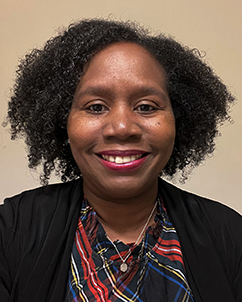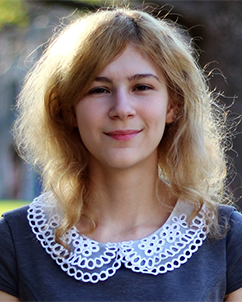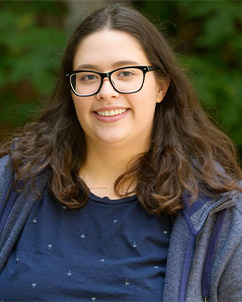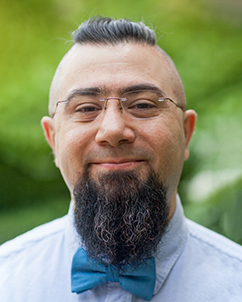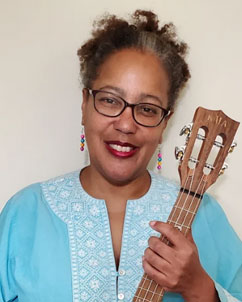Machine Learning, AI, Computational Linguistics, and Information Retrieval
Developing methods that allow computers to perform learned tasks autonomously, creating practical solutions for human needs.
Research Projects
MAITC Pilot A34 – MAITC Pilot A: Empowering Caregivers of Individuals with Cognitive Impairment to Make Safe Nonprescription Drug Decisions
Principal Investigator(s): Eun Kyoung Choe
Funder: National Institute on Aging (NIH) National Institutes of Health
Research Areas: Accessibility and Inclusive Design > Health Informatics > Human-Computer Interaction > Machine Learning, AI, Computational Linguistics, and Information Retrieval
This project introduces Aidara, an AI-powered digital health system designed to help caregivers make safer over-the-counter medication decisions for individuals with cognitive impairments. By using large language models to simplify and present drug information through multimodal formats- including text, speech, and visuals- Aidara aims to enhance understanding, reduce health risks, and improve self-guided medication management.
Principal Investigator(s): Eun Kyoung Choe
Funder: National Institute on Aging (NIH) National Institutes of Health
Research Areas: Accessibility and Inclusive Design > Health Informatics > Human-Computer Interaction > Machine Learning, AI, Computational Linguistics, and Information Retrieval
This project introduces Aidara, an AI-powered digital health system designed to help caregivers make safer over-the-counter medication decisions for individuals with cognitive impairments. By using large language models to simplify and present drug information through multimodal formats- including text, speech, and visuals- Aidara aims to enhance understanding, reduce health risks, and improve self-guided medication management.
CAREER: Self-Directed Human-LLM Coordination for Language Learning and Information Seeking
Principal Investigator(s): Ge Gao
Funder: National Science Foundation
Research Areas: Accessibility and Inclusive Design > Health Informatics > Human-Computer Interaction > Information Justice, Human Rights, and Technology Ethics > Machine Learning, AI, Computational Linguistics, and Information Retrieval > Youth Experience, Learning, and Digital Practices
This project uses AI-powered digital tutors to help individuals with limited majority-language proficiency improve their language skills for real-world information seeking. By enabling users to design personalized tutoring systems, the study advances language learning, AI literacy, and human-computer interaction.
Principal Investigator(s): Ge Gao
Funder: National Science Foundation
Research Areas: Accessibility and Inclusive Design > Health Informatics > Human-Computer Interaction > Information Justice, Human Rights, and Technology Ethics > Machine Learning, AI, Computational Linguistics, and Information Retrieval > Youth Experience, Learning, and Digital Practices
This project uses AI-powered digital tutors to help individuals with limited majority-language proficiency improve their language skills for real-world information seeking. By enabling users to design personalized tutoring systems, the study advances language learning, AI literacy, and human-computer interaction.
Human-Like Coaching for Home PT Exercises
Principal Investigator(s): Galina Madjaroff Reitz
Funder: Maryland Industrial Partnerships UMD Funded
Research Areas: Health Informatics > Human-Computer Interaction > Machine Learning, AI, Computational Linguistics, and Information Retrieval
Researchers are developing an AI-powered physical therapy coach that uses real-time motion tracking and personalized feedback to improve exercise adherence and outcomes. By simulating human-like interaction and emotional engagement, the project aims to make home-based rehabilitation more effective and accessible.
Principal Investigator(s): Galina Madjaroff Reitz
Funder: Maryland Industrial Partnerships UMD Funded
Research Areas: Health Informatics > Human-Computer Interaction > Machine Learning, AI, Computational Linguistics, and Information Retrieval
Researchers are developing an AI-powered physical therapy coach that uses real-time motion tracking and personalized feedback to improve exercise adherence and outcomes. By simulating human-like interaction and emotional engagement, the project aims to make home-based rehabilitation more effective and accessible.
Faculty
Staff
Recent News

Kaush Ganesh, HCIM '20
Alumni Profile: The Human Firewall: Why Cybersecurity Needs UX
A profile of HCIM alum Kaush Ganesh
AI Coach Transforms Physical Therapy at Home
MD-based startup and INFO researchers are helping to solve the problem of compliance with physical therapy through a human-like AI coac …
Photo courtesy of UMIACS





